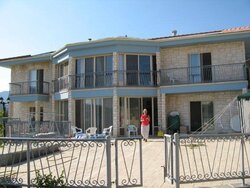Heating bills to be about 10% higher this winter
By Rex Nutting, MarketWatch
Last Update: 10:21 AM ET Oct 9, 2007
WASHINGTON (MarketWatch) -- Colder temperatures and higher fuel prices will force U.S. households to pay about 10%, or $88, more to heat their homes this winter, the Energy Department said Tuesday in its monthly short-term outlook.
The government expects temperatures in the lower 48 states to be about 4% colder than last year, but 2% warmer than the long-run average. Prices for all common fuels are expected to be higher than last year.
Households in the Northeast will be hit hardest. About a third of homes in the Northeast are heated with heating oil, the most expensive fuel. In addition, the Northeast pays the highest prices for natural gas, propane and electricity.
For 103 million households, heating bills are expected to average $977 for the six-month heating season, compared with $889 last year.
Fuel expenditures for individual households depend largely on local weather conditions, the local market, the size and efficiency of homes and their heating equipment, and thermostat settings, the government agency said.
Most households use natural gas for heating. Those 59 million households can be expected to pay $891 to heat their homes, up $78, or 9.5%, from last year.
The 31 million households that use electric heat will pay about $855 this winter, up $32, or 4%.
The 8 million households that use heating oil can expect to pay $1,785 this winter, up $319, or 22%.
The 5 million households that use propane will pay about $1,570 this winter, up $221, or 16%.
Meanwhile, gasoline prices are expected to be slightly higher next summer, rising to $2.97 per gallon on average compared with an average of $2.93 this past summer.
By Rex Nutting, MarketWatch
Last Update: 10:21 AM ET Oct 9, 2007
WASHINGTON (MarketWatch) -- Colder temperatures and higher fuel prices will force U.S. households to pay about 10%, or $88, more to heat their homes this winter, the Energy Department said Tuesday in its monthly short-term outlook.
The government expects temperatures in the lower 48 states to be about 4% colder than last year, but 2% warmer than the long-run average. Prices for all common fuels are expected to be higher than last year.
Households in the Northeast will be hit hardest. About a third of homes in the Northeast are heated with heating oil, the most expensive fuel. In addition, the Northeast pays the highest prices for natural gas, propane and electricity.
For 103 million households, heating bills are expected to average $977 for the six-month heating season, compared with $889 last year.
Fuel expenditures for individual households depend largely on local weather conditions, the local market, the size and efficiency of homes and their heating equipment, and thermostat settings, the government agency said.
Most households use natural gas for heating. Those 59 million households can be expected to pay $891 to heat their homes, up $78, or 9.5%, from last year.
The 31 million households that use electric heat will pay about $855 this winter, up $32, or 4%.
The 8 million households that use heating oil can expect to pay $1,785 this winter, up $319, or 22%.
The 5 million households that use propane will pay about $1,570 this winter, up $221, or 16%.
Meanwhile, gasoline prices are expected to be slightly higher next summer, rising to $2.97 per gallon on average compared with an average of $2.93 this past summer.




